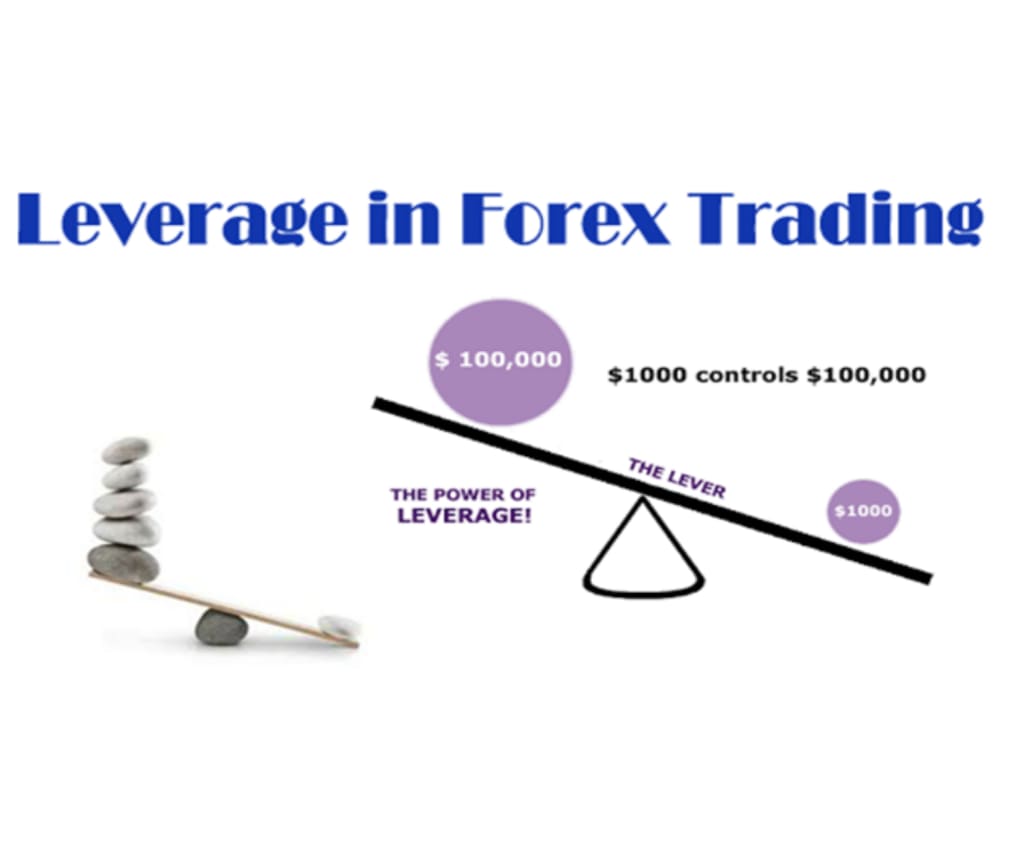Trading with Leverage
Trading with leverage increases the exposure of the financial market traders. Investors pay less capital and enjoy the benefits of the market at high positions.

What is leverage?
In the financial markets, traders want to have high market positions to enjoy greater benefits. But, investing in the markets requires huge funds and market knowledge to expand and grow as a trader. The professionals or investors with high fund availability are able to invest in the financial markets. However, not for all the traders, this applies.
So, the traders who have small market investments or funds can use the services of leverage. Leverage is the debt offered by the online brokers to enhance the trade position of the investors. With the use of leverage, they can invest low and trade at high market positions.
Leverage is the result of borrowed capital; in trading, with leverage, it is from the brokers, and in other financial aspects, it could be from banks, financial institutions, etc. The business uses the leverage to expand their business or generate returns from the markets. In a technical investment strategy, leverage is used as the borrowed money to enhance the returns from the market.
The market traders use the leverage ratio offered by online brokers such as ABInvesting. The leverage ratio is used systematically for having assured benefits. When traders use the leverage, they invest little and use the leverage to open at a high market position. Thus, the returns are double on the trade as per the leverage used.
In contrast, when traders face loss in the investment, they have to pay double of their investment. The risks of trading with leverage are high; therefore, it should be used with caution.
Trading with leverage
Leverage trading is termed margin trading, in which traders are allowed to open high market positions. With the small initial investments and high trade positions, traders use the market opportunities to generate profits at double their investments. For example, a trader creates an account with ABInvesting and deposits $200 to begin the trade.
So, the trader invested $200 in the forex market, but the trader studied the market, used the trading platform and tools to analyse the market, and design the strategy. After doing that, the trader predicts that the market will have a boom in prices in the near future.
But the trader lacks funds, so to meet the needs, the trader uses the option of leverage offered by the broker. With the leverage of 1:30, a trader opens at a high position and, in the future, will enjoy the benefits as per the open trade position.
However, the opposite can also happen, and traders may face double losses due to the market uncertainties.
Traders need to be experts and good with the trade to benefit from leverage trading. If traders can manage their risks and market volatility, they can generate profits from leverage trading and high market trading.
With the growth in the use leverage ratio, it has become a significant part of the trading. The leverage ratio is highly attractive for the traders who have fewer funds and thus is limited to that extent. Traders of all types can access the leverage ratio if they want.
The small investors use the leverage investment strategy to earn high in a short period of time. However, this is not true in the real world. Traders have to be experts for the use of leverage and have years of experience.
Although, the traders with such experience do not rely on leverage and have funds to invest. The small investment traders are either the beginners of the trade or traders with less experience, which makes it difficult to have increased profits.
The financial markets are highly volatile, and this fact makes it difficult to double the profits.
Leverage vs Margin
The terms leverage and margin are core parts of the trading business, but most of the investors are confused between the use of the two. Leverage and margin relate to one another but are not the same. Traders open a market position with an initial investment, which is leveraged and maximises the trade exposure of the investor.
Thus, leverage operates as the power booster to buy and sell the trade instruments, usually in the form of a ratio, and is important for the trade. Margin, on the other hand, is the investment or capital that a trader requires to invest and maintain to keep the trade position open.
Margin works as the cover for the market risks and is the necessity to create the leverage ratio.
A trader cannot use leverage without paying the margin calls; it is necessary for traders to pay the marginal calls to enjoy the leverage and high market positions.
Trading Leverage in Markets
- Leverage could be traded in various markets, including:
- Forex
- Indices
- Stocks
- Cryptocurrencies
Advantages and Disadvantages of Leverage
Market traders of leverage can have benefits and drawbacks; therefore, they should use it with research and complete market knowledge.
Advantages:
Optimised profits are the first advantage that traders enjoy after using the leverage ratio. When the investment is double and well analysed, traders have high profits.
Market opportunities, the low capital investment with leverage, provides traders with extra funds to invest in other markets and take advantage of the market opportunities.
Shorting is the trading strategy used for speculation on the market investments. Traders benefit from the falling markets and the rising ones as well.
Accessibility of the leverage is 24 hours; traders can use the services of leverage whenever they want to use it.
Disadvantages:
High risks in the trade make it difficult for traders to use the leverage ratio. As the investment is initial but the market position is high, which makes it good for profits if the decision of investment is correct and risky if the same turn the other way round.
Margin Calls are yet another factor of the leverage that traders have to pay to use leverage. The broker may ask traders to deposit the margin call whenever required.
Conclusion
Trading with leverage is fruitful when the investments are right, and the traders are experienced. The high market positions and the benefits attract traders, but the experienced traders avoid using the leverage due to the market volatility. However, traders with good market knowledge and beginners who want to earn the earliest use leverage trading.
About the Creator
keith cooper
https://trendingbrokers.com/






Comments
There are no comments for this story
Be the first to respond and start the conversation.